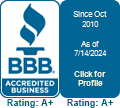The time when you need the most support for your body and immune system is when you are dealing with a health condition like MRSA or Staph. Unfortunately, getting that support using your favorite Staph or MRSA herbal remedies and natural products can be a big challenge inside hospitals, nursing homes and other health care facilities.
I’ve recently had to deal with this with my Dad during his hospital stay. Even for Dad to take his usual vitamins in the hospital, we had to have a doctor’s prescription in order for him to continue using them.
Most health care facilities frown on people using supplements and many forbid their use without a doctor’s prescription. On the other hand, some facilities allow patients to use any dietary supplements they choose. While some health centers have formal policies about supplements, many others have inconsistent and confusing policies or no policy at all. And, some centers handover the responsibility for supplement decisions to the doctor, pharmacist or another practitioner.
Why supplements can be challenging
There are many reasons why your right to use supplements for MRSA and other illnesses can be limited in healthcare centers. There are official guidelines for the use of supplements and alternative medicine in health care facilities. As you might expect, these guidelines were written by organizations within the mainstream medical system which have always been skeptical of natural health, namely the Joint Commission and American Society of Health-System Pharmacists (ASHP).
Many hospitals, nursing homes and other facilities try to compromise between the official guidelines and the patient’s wishes to use supplements. But there are legal reasons that discourage such a compromise.
Formal studies on the effectiveness and safety of many supplements are often lacking. And information on the possible interactions between supplements and pharmaceutical drugs is limited. Therefore, doctors, hospitals and health centers run the risk of law suits if they are too lenient with supplements, which don’t fit well into the mainstream medicine system.
Most doctors and health centers also lack knowledge, experience or training in natural and alternative medicine. Even if the center is open to the use of supplements and herbal remedies, doctors and other practitioners are likely to stick with the standard mainstream protocols that they know best.
What you can do
If you want to use your supplements or natural products in a hospital or nursing home, you may need to be a bit creative. Here are some tips for using supplements in a health care center:
- Safety first. Talk with your doctor about possible side effects and drug interactions with your supplements. While most natural products are very safe on their own, some herbs and alternative remedies may reduce the effectiveness of certain medications, including antibiotics. Supplements may need to be taken apart from certain medications. And some natural remedies are best avoided if you are pregnant or taking drugs with contraindications to those remedies.
- Get a prescription. If possible, get a prescription for the supplements you want to take. Many healthcare facilities will only allow supplements that a doctor prescribes. For example, some doctors are prescribing probiotics along with antibiotics to help reduce the negative side effects. Keep in mind that some facilities require supplements to be ordered, administered and stored in a controlled manner, so you may not be able to bring your supplies from home.
- Supplements as food. Many health care facilities allow outside foods and snacks to be brought in. And some foods can serve as replacements for some supplements. For example, antioxidant supplements can be simulated by eating foods such as blueberries that are rich in natural antioxidants. A probiotic supplement can be replaced in part by eating fermented foods such as kefir, miso, yogurt and kombucha tea. And some essential oils, like cinnamon bark, can be added to smoothies, tea or other foods for flavor enhancement.
- Cosmetic uses. Some natural products have both cosmetic uses and health benefits. You may be able to use such products openly for their cosmetic effects while benefiting quietly from their health benefits. Lavender essential oil for example is commonly used for calming foot massage, as an air freshening and to scent hand soaps and shampoos. But Lavender oil can also provide general infection and immune support and support for irritated and swollen skin. Tea tree essential oil can be added as a natural antibacterial to skin creams and liquid hand or bath soaps while also providing support with Staph and MRSA skin infections.
To your best health,
Michelle
Microbiologist and Natural Health Expert





